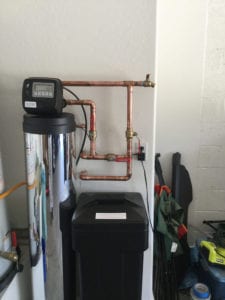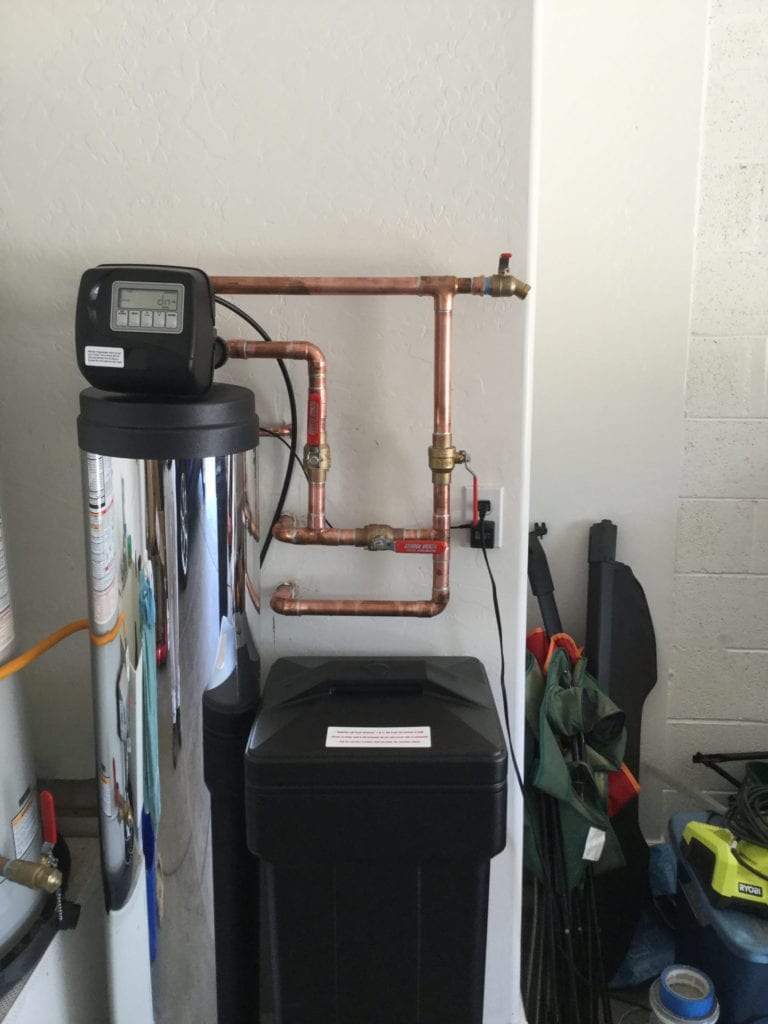
You have probably heard the terms of hard water and soft water, but you may not be familiar with the differences between the two terms. When rain falls, it is soft. Soft water is a natural part of nature. As the water falls and is seeped into the ground, it will pick up various minerals, including magnesium, calcium, lime, and chalk. Hard water contains essential minerals, so, to some, it is the preferred choice for drinking. Hard water not only offers more health benefits, it also offers a better flavoring.
People will often get water softeners for their water supply. To some, soft water is salty and doesn’t have as good taste, you may wonder why people opt to make the change in their drinking water supply. It is easier to see the differences between soft water and hard water when you are performing routine household chores. When you do laundry and end up with clothes that are yellowed or dingy, when your dishwasher leaves dishes and glasses with residue and spots, and your shower or bathtub accumulates soap scum, it is because of hard water.
Hard water elements are responsible for all those negative factors, plus the minerals in hard water can shorten the lifespan of household appliances, require more energy use, and even leave your hair and skin feeling sticky. The effectiveness of soap lessens in hard water because of the calcium and magnesium and how it reacts or responds. When the soap lathers, it will not be as bubbly.
Soft water is better for chores, allowing you to get the desired results and get the job done more efficiently and effectively. Soft water doesn’t have the unpleasant mineral taste that hard water has, and it doesn’t leave the sticky residue on your hair or skin, on glassware and dishes, or cause damage to your appliances.
What is Water Hardness?
The simple way to define water hardness is the amount of magnesium and calcium dissolved in the water. High in dissolved mineral content, specifically magnesium and calcium. If water contains from 17 mg/l to 60 mg/l it is slightly hard, but water that contains from 60 to 120 mg/l is moderately hard. What is traditionally considered hard water has anywhere from 120 mg/l to 180 mg/l. Anything exceeding 180 mg/l is very hard. People usually can tell that they have hard water because of t
he impact it has on their appliances and plumbing as well as its affect on laundry, dishes, and bathing.

What Constitutes Soft Water?
Soft water has lower amounts of magnesium and calcium that hard water does. Dissolved minerals in soft water are 17 mg/l and it doesn’t have the mineral taste. It does the job more effectively, not leaving residue or a sticky feeling on bathtubs, appliances, hair or skin. There are areas, such as along the East Coast and in the Pacific Northwest, where there is naturally soft water. Using chemical and mechanical processes, hard water can be softened.
Advantages vs. Disadvantages of Hardwater
As previously mentioned, hard water can cause stains and is more difficult to use than soft water. Purchasing a water softener for your home water supply can be well worth the money and save you a lot of trouble and effort later. Your plumber will be able to help you determine what kind of water softener is best for your specific needs. A simple water test will help your plumber determine which minerals are in your water, and how those minerals need to be addressed.
If you don’t have a water softener, you may find yourself spending more time cleaning up the sinks, bathtubs, and showers, rewashing dishes, replacing discolored clothing and linens that were yellowed while in the laundry, and so forth. That is also better for the environment because plastic water bottles end up in the oceans and landfills, causing significant damage.
Talk With A Professional Plumber
If you want to know more about your options as far as a water softener goes, and if you want to learn about the minerals in your water supply, you should schedule a consultation with an experienced plumber in your area. One of our plumbing professionals will be able to perform a water test and based off the results, make the best recommendations for your specific needs. Call us today to schedule an appointment.

